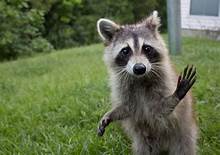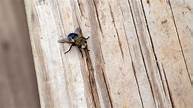Is It Legal to Keep a Raccoon as a Pet?
Raccoons are intelligent, curious, and adaptable animals that can make interesting companions. However, it is important to consider the legal and ethical implications of keeping a raccoon as a pet before making a decision. In this article, we will explore the legality of owning a raccoon as a pet in different jurisdictions, as well as the responsibilities and challenges associated with raccoon ownership.

Legality of Raccoon Ownership
United States: In the United States, the legality of owning a raccoon as a pet varies from state to state. Some states have no laws specifically prohibiting the ownership of raccoons, while others have laws that either ban the possession of raccoons or require a permit. In addition, some local governments may have their own ordinances that regulate the ownership of raccoons.
Canada: In Canada, the ownership of raccoons is generally prohibited. However, there are some provinces that allow the possession of raccoons with a permit. In these provinces, the requirements for obtaining a permit vary.
Other Countries: The legality of raccoon ownership varies widely from country to country. In some countries, raccoons are considered to be pests and their ownership is strictly prohibited. In other countries, raccoons may be kept as pets with a permit.
Responsibilities of Raccoon Ownership
Veterinary Care: Raccoons require regular veterinary care, including vaccinations, parasite control, and dental care. It is important to find a veterinarian who is experienced in treating raccoons.
Diet: Raccoons are omnivores and their diet should consist of a variety of foods, including fruits, vegetables, meats, and insects. It is important to provide your raccoon with a healthy and balanced diet.
Housing: Raccoons need a spacious enclosure that is escape-proof and provides them with plenty of opportunities for climbing, playing, and hiding. The enclosure should also be kept clean and free of debris.
Challenges of Raccoon Ownership
Nocturnal Behavior: Raccoons are nocturnal animals, which means that they are most active at night. This can be a challenge for owners who have to work during the day.
Destructive Behavior: Raccoons are curious and playful animals that can be destructive if they are not properly trained and socialized. They may chew on furniture, dig in the trash, and climb on curtains.
Risk of Disease: Raccoons can carry a variety of diseases that can be transmitted to humans, including rabies, roundworm, and toxoplasmosis. It is important to take precautions to prevent the spread of disease, such as washing your hands after handling your raccoon and keeping your raccoon vaccinated.
Conclusion
The decision to own a raccoon as a pet is a serious one. There are many factors to consider, including the legality of raccoon ownership in your jurisdiction, the responsibilities of raccoon ownership, and the challenges associated with raccoon ownership. If you are considering getting a raccoon as a pet, it is important to do your research and make sure that you are prepared to provide your raccoon with the care and attention that it needs.
Declaration: All article resources on this website, unless otherwise specified or labeled, are collected from online resources. If the content on this website infringes on the legitimate rights and interests of the original author, you can contact this website to delete it.




